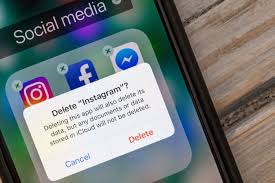Social Media has been around since the 1990s and has been affecting people for years. The first social media website was called SixDegrees, designed by Andrew Weinreich in 1997. Social media didn’t start to become popular until the early 2000s, with platforms like Friendster, MySpace and LinkedIn. However, Facebook’s launch in 2004 and the rise in smartphones catapulted social media into the mainstream.
Mark Zuckerberg launched Facebook at Harvard University in February 2004. Days later, 650 students had made accounts. Today, there are roughly two billion daily active users. simultaneously with Facebooks huge expansion there has been growing concerns over the mental well-being of adolescents and young adults. It is important to understand the relationship between mental health and technology use, especially how younger people use social media.
Facebook access leads to more anxiety and depression
When Facebook began, access was restricted to people with a Harvard email address so only they could use it. less than a month later it expanded to Stanford, Columbia, and Yale. This continued until September of 2006 when anybody over 13 years old was able to create an account. Broadly the research found an increase in the number of students who reported mental distress at some time in the preceding year. College-wide access to Facebook led to an increase in severe depression by 7% and anxiety disorder by 20%. In total, the negative effect of Facebook on mental health appeared to be roughly 20% the magnitude of what is experienced by those who lose their job.
As of 2021, 4.5 billion people- more than half of the global population- had a social media account. The earlier teens start using social media, the greater impact the platforms have on mental health. This is especially true for females. While teen males tend to express aggression physically, females do so relationally by excluding others and sharing hurtful comments. Social media increases the opportunity for such harmful interactions. Social media also puts a distorted lens on appearances and reality. Facebook, Snapchat, and Instagram increase the likelihood of seeing inrealistic, filtered photos.
Social media has had a negative impact for a while and no matter how long you choose to cut off social media access, research shows that a break from repetitive scrolling and constant notifications can improve mental health and quaity of life.













